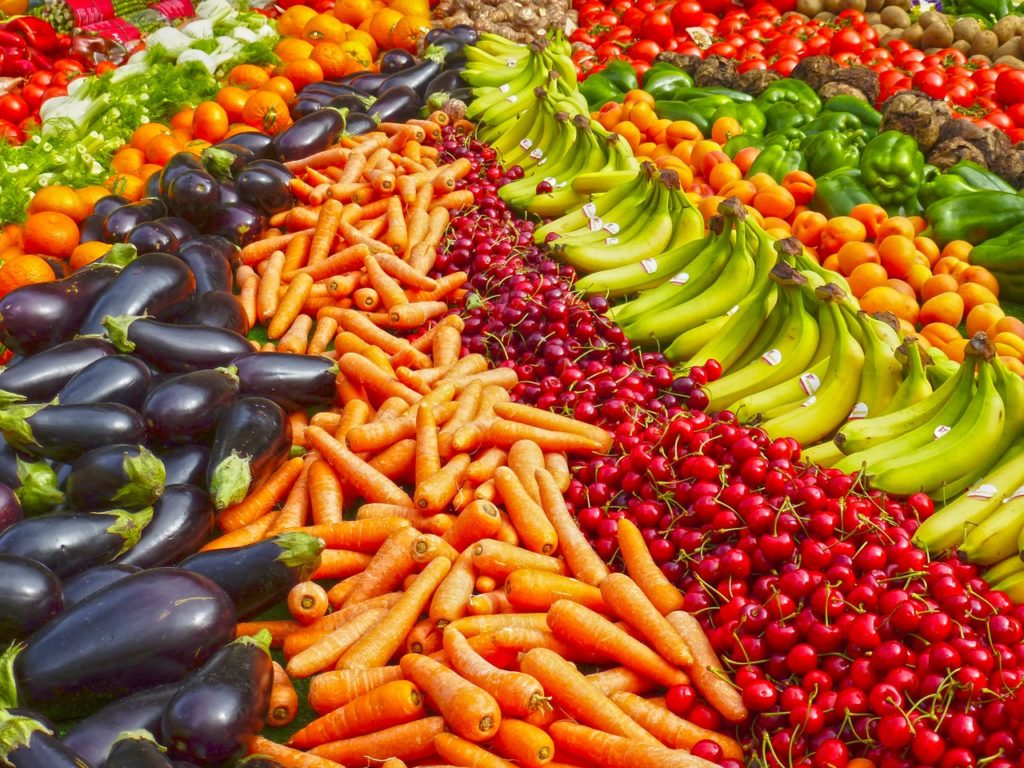How to Keep Inflammation in Check
Disclaimer: This post contains affiliate links. I may earn a small commission should you chose to make a purchase using my link. I stand behind all the products/books I recommend.
Whether you are looking to make changes in your diet to lose weight or make healthier eating habits, it’s important to get informed about inflammation. We really are what we eat; the food you ingest has a significant role in every single aspect of your physical and emotional health: energy, mood, weight, complexion, and disease. A substantial amount of research and studies confirm that chronic inflammation is unhealthy and can lead to multiple health complications.
This blog post will help you understand what inflammation is and how the typical American diet contributes to it. I will present you with a list of all the “bad” foods you need to avoid in order to fight inflammation. I will talk about the effects of this process on one’s general health. Chronic inflammation has been linked to weight gain, mood changes, lack of energy, and many major diseases that plague us, including cancer, heart disease, diabetes, arthritis, depression, and Alzheimer’s. The present post outlines a plan for an anti-inflammatory diet and lifestyle. Understand this is not a plan to lose weight or a temporary fix; this is a way of life.
I want to clarify that the advice given in this article is aimed at a healthier you. It is not about deprivation or starvation. Remember, one of the secrets to rejuvenation is seeking pleasure. I like my food, I like my glass of wine with it, and I like a high-quality dessert here and there. The information in this post is about being mindful of what we eat and choosing wisely.
As a cancer survivor (although my oncologist never suggested not to eat or drink anything in particular) I decided (progressively over the last eight years) to modify my diet by making a few key changes. I can assure you that you can notice results almost immediately; you will start feeling better right away. I never went back to the “bad eating habits.” I practice “clean eating.” Anyone can make these changes, adapting them to their lifestyle and circumstances. You just need some basic “food” information to start your plan. When it comes to aging, we all have choices. However, pretty much every expert agrees: it becomes paramount to exercise and eat right if we want to maintain a healthy lifestyle. Simply put, stay active, eat the foods on the “good list,” and avoid the foods on the “bad list.”
What’s inflammation?
Inflammation can be both good or bad. Inflammation is a natural process that helps your body heal and defends itself from harm. Your immune system becomes activated when your body recognizes anything foreign, an invading microbe, plant pollen, or chemical. This often triggers a process called inflammation. Inflammation is your body’s way of protecting itself from infection, illness, or injury. Intermittent bouts of it directed at truly threatening invaders protect your health.
However, inflammation is harmful if it becomes chronic (long-term). Sometimes inflammation persists, day in and day out, even when you are not threatened by a foreign invader. That is when inflammation can become your enemy. Chronic inflammation often occurs inside your body without any noticeable symptoms. It can also happen when people are obese or under stress. Chronic inflammation can lead to various diseases.
How to fight inflammation
There are many things you can do to reduce inflammation and improve your overall health. Doctors are learning that one of the best ways to reduce inflammation lies not in the pharmacy or medicine cabinet but in your refrigerator or the grocery store. Dr. Frank Hu, professor of nutrition and epidemiology in the Department of Nutrition at the Harvard School of Public Health, says, “many experimental studies have shown that components of foods or beverages may have anti-inflammatory effects.”
How your diet plays a fundamental role
Choose the right anti-inflammatory foods, and you may be able to reduce your risk of illness. Consistently pick the wrong ones, and you could accelerate the inflammatory disease process. Certain lifestyle habits can promote inflammation:
- Consuming high amounts of sugar and high-fructose corn syrup.
- Consuming a lot of refined carbs.
- Regularly eating processed foods.
- Regular consumption of vegetable oils sued in many process foods.
- Excessive intake of alcohol and processed meat.
Additionally, an inactive lifestyle (getting little exercise) is associated with increased inflammation. Some of the foods that have been associated with an increased risk of chronic diseases such as type 2 diabetes and heart disease are also associated with excess inflammation.
Making the right changes, however, will help you get inflammation in check. Some beverages and foods reduce inflammation, and with it, chronic disease. Base your diet on whole, nutrient-dense foods that contain antioxidants.
Antioxidants work by reducing levels of free radicals. Your anti-inflammatory diet should provide a healthy balance of protein, carbs, and fat at each meal. Your diet should also meet your body’s needs for vitamins, minerals, fiber, and water. “An excellent example of an anti-inflammatory diet is the Mediterranean diet, which is high in fruits, vegetables, nuts, whole grains, fish, and healthy oils.
What NOT to eat (inflammatory foods)
- Refined carbohydrates. Anything made with white flour, including bread and pasta.
- Sugar and sugary beverages. Avoid added sugar and high-fructose corn syrup: artificial sweeteners and fruit juices.
- Desserts. Cookies, candy, cake, and ice cream.
- Fried foods.
- Processed meat. Hot dogs, sausages, bologna, etc.
- Processed snack foods. Crackers, chips, and pretzels.
- Processed foods made with soybean oil, corn oil, sunflower oil, cottonseed oil, peanut oil.
- Trans fats. Foods with partially hydrogenated ingredients.
- Alcohol in excess. Excessive alcohol consumption.
In short, avoid or minimize (you don’t have to eliminate certain foods or drinks entirely) sugary foods and beverages, processed meats, excessive alcohol, and foods high in refined carbs and unhealthy fats.
What to eat (anti-inflammatory foods)
- Vegetables: Broccoli, Brussel sprouts, cauliflower, carrots, pumpkin squash, etc.
- Fruit: berries, oranges, apples, grapes, pears, cherries.
- High-fat fruits: Avocados, olives.
- Heart-healthy oils: Extra-virgin olive oil, coconut oil, walnut oil.
- Peppers: Bell peppers and chili peppers.
- Nuts: Almonds, walnuts, pistachios.
- Fatty fish: Salmon, mackerel, sardines.
- Seeds: Flax seeds, sesame seeds, chia seeds.
- Spices: Turmeric, cinnamon, cumin, garlic, cayenne pepper.
- Tea: Green tea.
- Chocolate: dark chocolate (70% and above, in moderation)
- Wine: Especially red (in moderation).
In conclusion, even low levels of inflammation on a chronic basis can lead to disease. Do your best to keep inflammation in check by choosing a wide variety of delicious, antioxidant-rich foods. The anti-inflammatory diet encourages eating whole foods (like fruits, vegetables, nuts, seeds, and fish) and avoiding processed foods that are high in refined sugars, flours, and trans fats. The overall message is to focus on variety, eat nutritionally dense foods, and maintain balanced amounts. Use these suggestions as a guideline rather than a prescription. Talk to your doctor before starting any nutritional plan. Focus on lean protein and vegetables and eat as many colors as possible.
The following books will be very helpful tools to start the journey to a healthier you through the anti-inflammatory diet.

